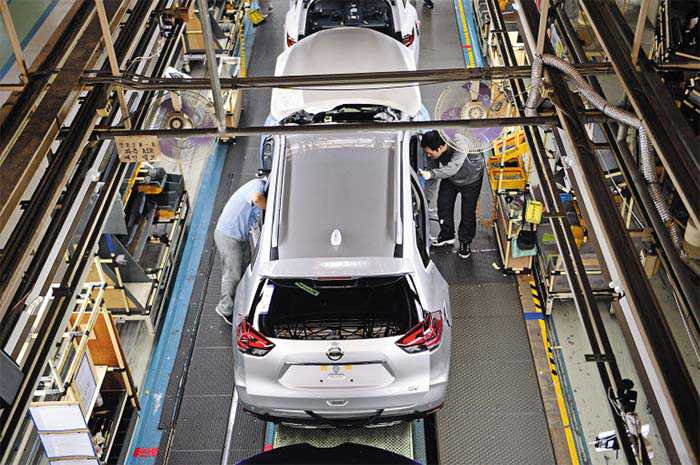Korea's Smaller Carmakers in Dire Straits
27 August, 2019

The country's three smaller carmakers, GM Korea, Ssangyong and Renault Samsung, are in increasing financial straits as markets dwindle and orders vanish.
They helped Korea produce 4.55 million cars as recently as 2015, the fifth most in the world, but the roost is ruled by Hyundai and affiliate Kia. Last year that fell to 4.02 million cars and Korea to the world's seventh-largest automobile producer behind Mexico and India.
The ramifications affect not only the automakers but their suppliers and sellers that employ 1.7 million workers here, and an even bigger storm is approaching.
Massive layoffs and other restructuring have held off the worst for now, but GM Korea, Ssangyong and Renault Samsung face another crisis as their domestic brand power weakens and exports decline.
Renault Samsung told labor union representatives last Wednesday that around 400 workers will have to be laid off through early-retirement packages as production of the Nissan Rogue SUV, which accounted for around half of the automaker's annual production volume of 200,000 cars, has fallen to 60,000 this year and will be terminated next year.
The reason is dwindling competitiveness. Renault has entrusted the production of a follow-up model to the Rogue, produced at its Busan plant for the last six years, to a plant in Kyushu, Japan. Over that period, wages in Busan outstripped those in Kyushu even as the Korean factory fell behind in productivity.
GM Korea, which suffered a W4.4 trillion loss over the last five years, shut down its Gunsan assembly plant last year and laid off 2,700 workers and sales remain weak (US$1=W1,216). Production volume peaked at 780,000 cars in 2012 but is expected to fall to 400,000 this year as headquarters in the U.S. radically slims down operations.
Ssangyong managed to come back from the brink of bankruptcy in 2009 with massive layoffs but has suffered losses for the last 10 quarters. Ssangyong CEO Yea Byung-tae recently set up a special task force to deal with the crisis and pledged to overhaul the SUV maker.
But Lee Hang-koo at the Korea Institute for Industrial Economics and Trade said, "Minor companies suffer from weak brand competitiveness, and their edge in consigned production has weakened compared to Mexico and India due to high wages."
Even Hyundai, whose operating profits dropped by a third last year compared to 2015, has decided to scrap its regular, annual promotion system so it can get rid of underperforming executives more quickly.
Hyundai and Kia have slashed the number of executives from 479 in 2017 to 442 as of March this year. They are faring better than their three small rivals due to the popularity of their cars in Korea, but overseas sales continue to decline.
Now automakers have to roll their sleeves to prepare for a paradigm shift in the industry if they want to survive and thrive. Global car demand is shrinking, even in the world's largest market China, while mobility services such as car sharing and e-hailing become popular.
Electric vehicles will eventually replace combustion-engine cars, which means fewer workers are need on production lines and many are replaced by robots.
"The days of global automakers betting on volume sales are over," said Kim Yong-jin at Sogang University. "Restructuring is inescapable in a new industrial environment shifting to shared cars, future vehicles and eco-friendly cars."
Source:
